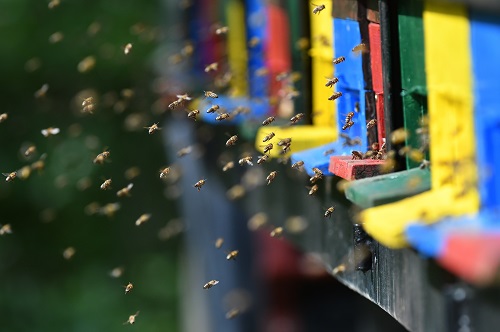ApisProtect Securing Honey Bees with Better Hive Monitoring
December 03, 2018
These days, rather than inspecting beehives by hand, beekeepers and other industry insiders are leaning more toward new high-quality sensors for monitoring commercial honey bees. Basically, this shift means honey bees, which have seen declining numbers for over a decade now, can get the full attention of the keepers working hard to keep them healthy as one of the more important pollinating species in the world. ApisProtect, an agtech company based in Ireland, is a manufacturing leader for these new sensors, and they just closed a nearly two-million-dollar seed financing deal in order to expand their operation into the United States, specifically a Salinas, California office.
ApisProtect offers real-time beehive monitoring that’s powered via sat-enabled sensors that have been retrofitted for existing beehives. This technology means that beekeepers can manage their colonies more effectively and don't need to rely on manual periodic checks, which can allow pests, diseases, or other problems to worsen the hive’s health, per Dr. Fiona Edwards Murphy, the CEO and co-founder of ApisProtect.
She added, "Periodic checks can miss the hives with problems. You can have two hives next to each other and one will be fine while the other has severe problems. For operators with thousands of hives, manual spot checks can’t hope to catch all the issues." ApisProtect is said to currently monitor 144 hives and six million bees across North America and Europe, and, by the end of 2018, they plan to hit 200 hives (or nine million honey bees).
Their technology gathers data on humidity, temperature, sound, movement, and carbon dioxide from one sensor unit within the beehive. "We collect data from beehives all over the world using a combination of different long-range networks to bring these data together on our servers," Murphy said. "There, we use 'machine learning' technology to process and convert overwhelming amounts of raw data into actual information a beekeeper can use."
All of this data becomes simplified with various alerts, such as “this hive has no queen" or “these hives are sick” rather than prolonged information graphs. Per Murphy, "This allows beekeepers to use the beekeeping skills and knowledge they already possess in a much more effective manner...to maximize pollination and honey yield." ApisProtect’s new California office, according to Murphy, is said to be the “home of commercial pollination,” adding that, "It’s both where this industry was created and where it remains most valuable globally, due to the scale of the almond industry, which is almost totally reliant on honey bee pollination."
Photo By UrosPoteko


.jpg)




